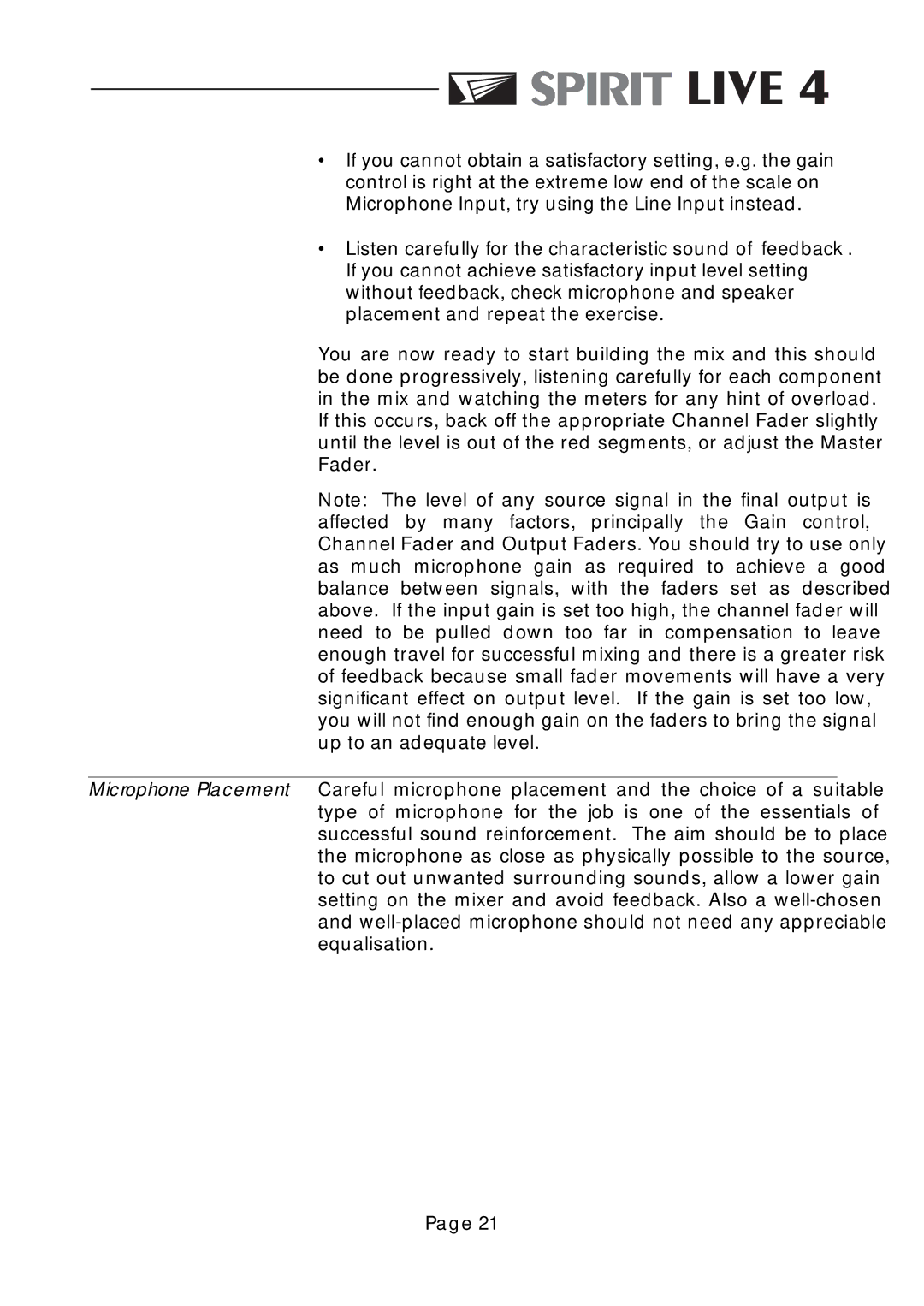
∙If you cannot obtain a satisfactory setting, e.g. the gain control is right at the extrem e low end of the scale on Microp hone Inp u t, try u sing the Line Inp u t instead .
∙Listen carefu lly for the characteristic sou nd of ‘feed back’. If you cannot achieve satisfactory inp u t level setting
w ithou t feed back, check m icrop hone and sp eaker p lacem ent and rep eat the exercise.
You are now read y to start bu ild ing the m ix and this shou ld be d one p rogressively, listening carefu lly for each com p onent in the m ix and w atching the m eters for any hint of overload . If this occu rs, back off the ap p rop riate Channel Fad er slightly u ntil the level is ou t of the red segm ents, or ad ju st the Master Fad er.
N ote: The level of any sou rce signal in the final ou tp u t is affected by m any factors, p rincip ally the Gain control, Channel Fad er and Ou tp u t Fad ers. You shou ld try to u se only as m u ch m icrop hone gain as requ ired to achieve a good balance betw een signals, w ith the fad ers set as d escribed above. If the inp u t gain is set too high, the channel fad er w ill need to be p u lled d ow n too far in com p ensation to leave enou gh travel for su ccessfu l m ixing and there is a greater risk of feed back becau se sm all fad er m ovem ents w ill have a very significant effect on ou tp u t level. If the gain is set too low , you w ill not find enou gh gain on the fad ers to bring the signal u p to an ad equ ate level.
Microphone Pla cement Carefu l m icrop hone p lacem ent and the choice of a su itable typ e of m icrop hone for the job is one of the essentials of su ccessfu l sou nd reinforcem ent. The aim shou ld be to p lace the m icrop hone as close as p hysically p ossible to the sou rce, to cu t ou t u nw anted su rrou nd ing sou nd s, allow a low er gain setting on the m ixer and avoid feed back. Also a w
